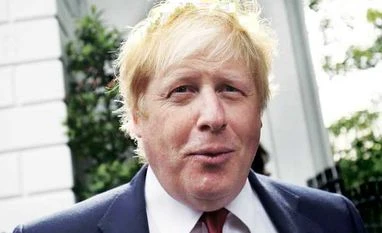British Foreign Secretary Boris Johnson said he expects the UK to retain the right for its financial firms to sell services across European Union member states after Britain's exit from the bloc.
Johnson, speaking to reporters in New York and the United Nations headquarters, also said Britain has been approached by several countries interested in trade deals after UK voters chose last month in a referendum to secede from the EU.
The British government needs to negotiate a new relationship with the EU once London triggers Article 50, the formal start of divorce talks, which could take a year or longer. One main concern that remains is whether Britain's financial services sector will keep its so-called "passporting" rights, and when asked if he believed that would be maintained, Johnson said: "I do. I do."
Johnson said he had "no doubt" that a balance between overall access to the single European market and freedom of movement can be struck.
"I've been very encouraged by the conversations I've had with other European colleagues over the last week or so whether in Brussels or here in the United States," Johnson said at the United Nations.
He said fast progress would be in the economic interest both of Britain and of the EU.
"The faster we get on and do it the better."
Johnson, speaking to reporters in New York and the United Nations headquarters, also said Britain has been approached by several countries interested in trade deals after UK voters chose last month in a referendum to secede from the EU.
The British government needs to negotiate a new relationship with the EU once London triggers Article 50, the formal start of divorce talks, which could take a year or longer. One main concern that remains is whether Britain's financial services sector will keep its so-called "passporting" rights, and when asked if he believed that would be maintained, Johnson said: "I do. I do."
More From This Section
Passporting is a lynchpin feature of the EU's single market, especially for banks, as it allows firms to provide services to clients across the EU. The loss of it for UK-based firms could cripple London's standing as a global financial centre.
Johnson said he had "no doubt" that a balance between overall access to the single European market and freedom of movement can be struck.
"I've been very encouraged by the conversations I've had with other European colleagues over the last week or so whether in Brussels or here in the United States," Johnson said at the United Nations.
He said fast progress would be in the economic interest both of Britain and of the EU.
"The faster we get on and do it the better."
)